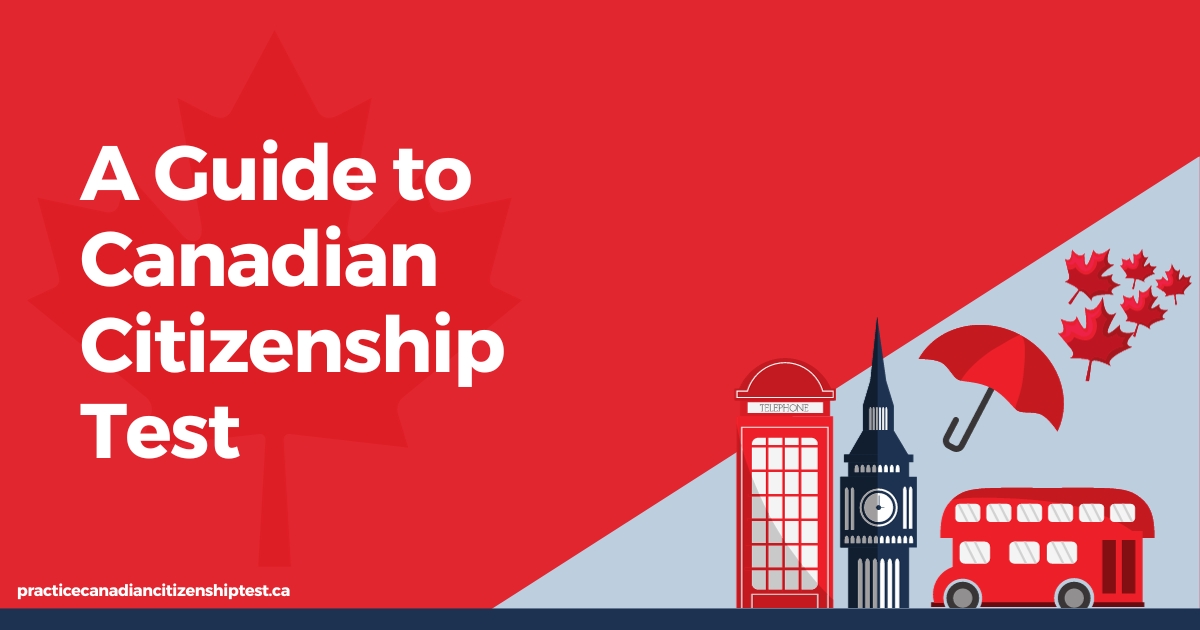A Guide to Canadian Citizenship Test
By Humaiz on Sep 26, 2023
Many immigrants travel to Canada for quality education, better healthcare systems and diverse job or business opportunities. After living here for a specific time duration, they are able to get permanent residency. People who are PR holders strive to pass the next step and that is taking the Canadian Citizenship Test. Before we delve deep into the topic, let's discuss the eligibility criteria.
Eligibility Requirement
Permanent residents of Canada have the option to get Canadian nationality based on certain requirement
- Applicants must have lived in Canada for at least 5 years and shouldn't be absent from Canada for more than three years.
- Applicants should provide proof for Income Tax Filing in the last three years of their specific province or territory to the Canada Revenue Agency (CRA).
- Applicants have to show the language proficiency of either English or French language.
- Applicants have to pass the Canadian Citizenship Test.
- Applicant has to show good moral conduct and no criminal activity inside or outside the Canada
After meeting all the requirement, applicant is required to send an application to the IRCC for Canadian Citizenship
Taking Canadian Citizenship Test
The Canadian Citizenship Test is computer-based with 20 MCQs, our which you need to answer 15 correctly. The test evaluates applicant’s knowledge concerning Canadian Laws, government, values, culture, history, rights and responsibilities. You have a choice to either take a test in English or French. You might also encounter questions related to your province or territory of residence. Taking and passing the test gives a testament that all applicants have a basic understanding of the values and laws of the new country that they will call home.
How to Prepare for the Canadian Citizenship Test?
To prepare for the Canadian Citizenship Test, you need to first study the course that is recommended by IRCC’s official study guide The Rights and Responsibilities of Citizenship. The book covers all the topics that are included in an actual exam. Understanding the underlying concept is important for conceptual study. The pdf version on the official website is free. If you are a passive learner, you can listen to its audio version and memorize each topic. You can also take help from youtube videos and podcasts to enhance your learning. Once the book is thoroughly memorized, you can take the Practice Canadian Citizenship Test. Keep in mind that the Canadian Citizenship Test is a competitive exam and only revision can help you in better memorization. Taking multiple attempts of Mock tests can help you to reinforce the knowledge and revise all the syllabus.
You Next Interview
If you have failed the test, don’t worry, you can always go for the next attempt. Majority of the candidates do not score well in their initial attempt. If you have passed the exam, congratulations. Citizenship Officials will invite you for an interview. There you will get your test results and will be asked to verify your original documents. If the interview is a success, IRCC will invite you for the CItizenship Ceremony. You will be provided with all the info including venue, date and day. The CItizenship Ceremony is held everywhere and happens all around the country, where the people give their allegiance to the king and take an oath to become a responsible citizen.
Understanding the Canadian Citizenship Application Process
Applicants have the choice to either complete their application process online or on paper. The fee for an adult applicant is $630, while it's $100 for a child. Make sure you attach the receipt of payment with the application, otherwise your application for citizenship can get canceled.
Confirmation Letter
Once the application is submitted and approved, the Immigration, Refugees, and Citizenship Canada (IRCC) will send the confirmation letter. This indicates that your application is under review.
Windmill loan program
Immigrants with permanent status can apply for the Windmill loan program of $15,000. These loans can be used for various purposes related to career development, such as accreditation, training, or further education in Canada.


